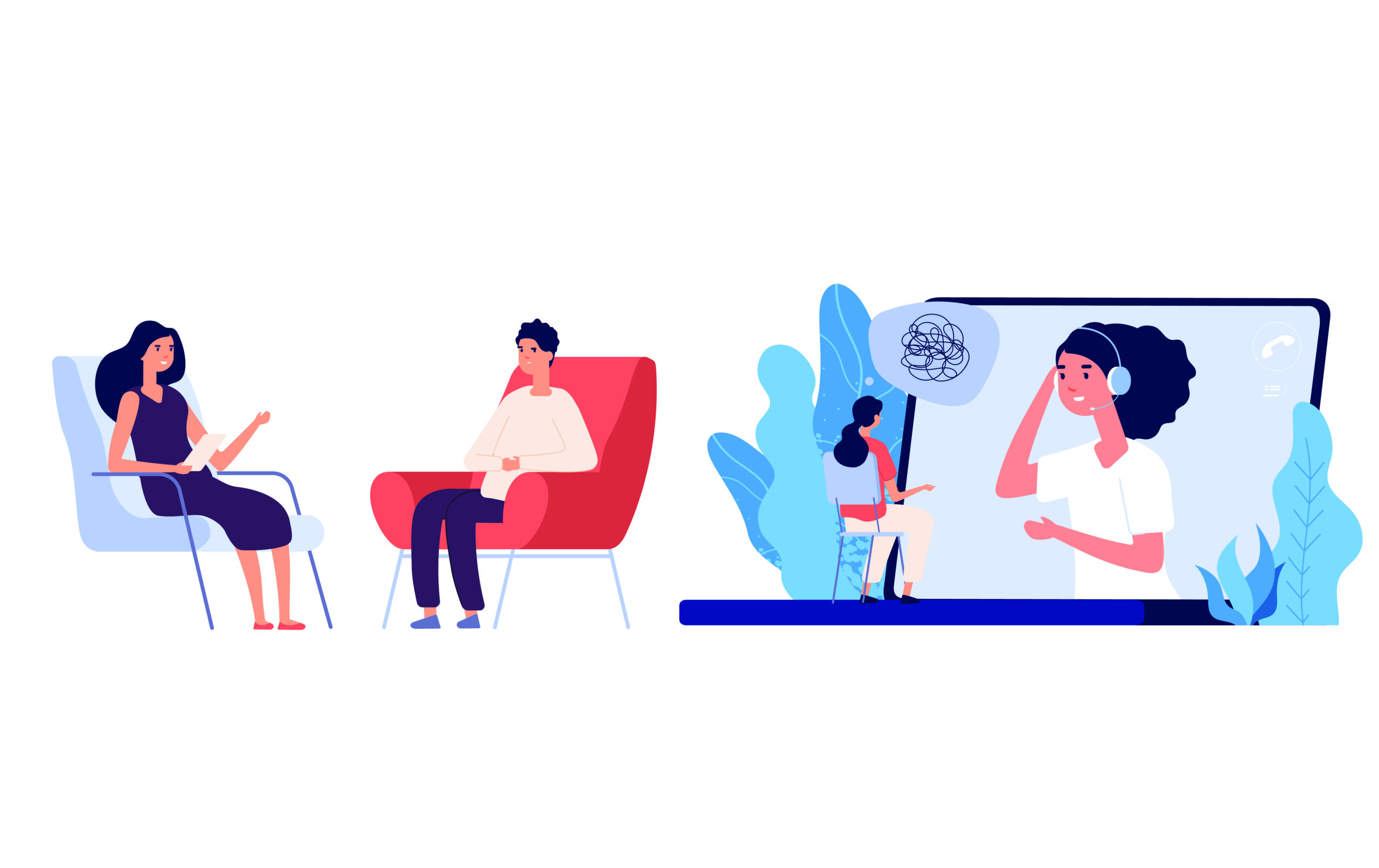by Grace Smithwick
As Coronavirus continues to dominate headlines, 2020 has seen an unprecedented rise in people seeking mental health assistance. As feelings of isolation-induced anxiety and depression grow during lockdowns and physical distancing mandates, more and more people are seeking help to get them through these rough times. Therapy is a straightforward concept, on the surface—meet with a licensed professional and talk through the things that are bothering you in a safe, secure space. Even in times of relative peace, on a global scale or a personal one, taking the time out of your busy schedule to sit down and talk with a licensed professional about your worries can have a drastic improvement on your mental health.
However, such a thing is easier said than done. Aside from the practical issues—how do you find a therapist? Will your insurance cover the cost? How do you find the time to talk to someone during a busy work week?—many people do not seek professional help because they believe that they can manage their anxiety or depression on their own. The simple fact of that matter is that everyone could use someone to talk to. Access to a therapist can be a life-saving resource. Being able to sit down with a licensed mental health counselor and address the issues you are having can truly turn your life around. Knowing that there is someone out there on your side, unbiased and dedicated to helping you work through your problems can be a light when things are at their darkest. No one should feel as if they have to weather their mental health storms on their own.
Being able to speak with a therapist regularly can be great. For all of its many benefits, however, there are some cons to traditional, in-person therapy. For one, it can be an expensive option if you do not have health insurance or aren’t able to get a referral from a doctor. For another, when going through the more affordable avenues of mental health care, you often have to wait a long time to be matched with a professional, and even after you have been matched, you may find that that person is not the right fit for you, and you must restart the already lengthy process. And on top of all of that, it can be intimidating to go to an office and sit on a couch and be stared down as you attempt to describe the problems you are having.
So what do you do when you can’t afford to see a therapist? Or when your anxiety or work schedule makes it impossible to schedule face-to-face meetings? There are several options, including apps to help you manage stress and anxiety. Mobile apps are an affordable way to treat mental health issues when access to a licensed professional is simply not in the cards. In the article “Do mental health mobile apps work: evidence and recommendations for designing high-efficacy mental health mobile apps” published by MHealth, Pooja Chandrashekar put forth the claim that mobile mental health apps are working to bridge the gap of affordable healthcare and providing much needed help to millions on a day to day basis:
“Public health organizations like the U.K.’s National Health Service (NHS) and the U.S. National Institute of Mental Health (NIMH) have pointed to mental health apps as cost-effective and scalable solutions to addressing the mental health treatment gap.”
In the same article, Chandrashekar also concluded that “App-based features that enable users to self-monitor their mood by periodically reporting their thoughts, behaviors and actions can increase emotional self-awareness (ESA), which has been found to be implicated in anxiety, depression and substance abuse. Increasing ESA, defined as the ability to identify and understand one’s own emotions, has been shown to reduce symptoms of mental illness and improve coping skills.”
While it is always best to seek professional help whenever possible, using apps to better understand your own emotional self-awareness is a huge step in the right direction of improving your overall mental health. So, if you are looking for an app to help manage your anxiety or depression, here are a few to try out:
Rootd – An app for managing anxiety and getting yourself through panic attacks, Rootd also features breathing tools and tips for guided meditation.
Wysa – An A.I. chat-based app designed to talk you through your worst moments and help you keep track of your mood, aiding in increasing emotional self-awareness.
InnerHour – A personal journal and goal-oriented app with self-help courses for depression, anxiety and sleep. InnerHour also has a chat feature that connects you with a qualified mental health professional.
In the end, you are the only one who can decide the best way to treat your mental health. Maybe you are a person who does better when they can speak to someone face-to-face. Perhaps all you need to get through a rough spot is a few minutes of guided meditation on your phone. Both traditional, in-person therapy and therapy apps have tremendous benefits and help in different ways. The best thing you can do is keep checking in with yourself, and when things get bad, never hesitate to seek help








Leave A Comment